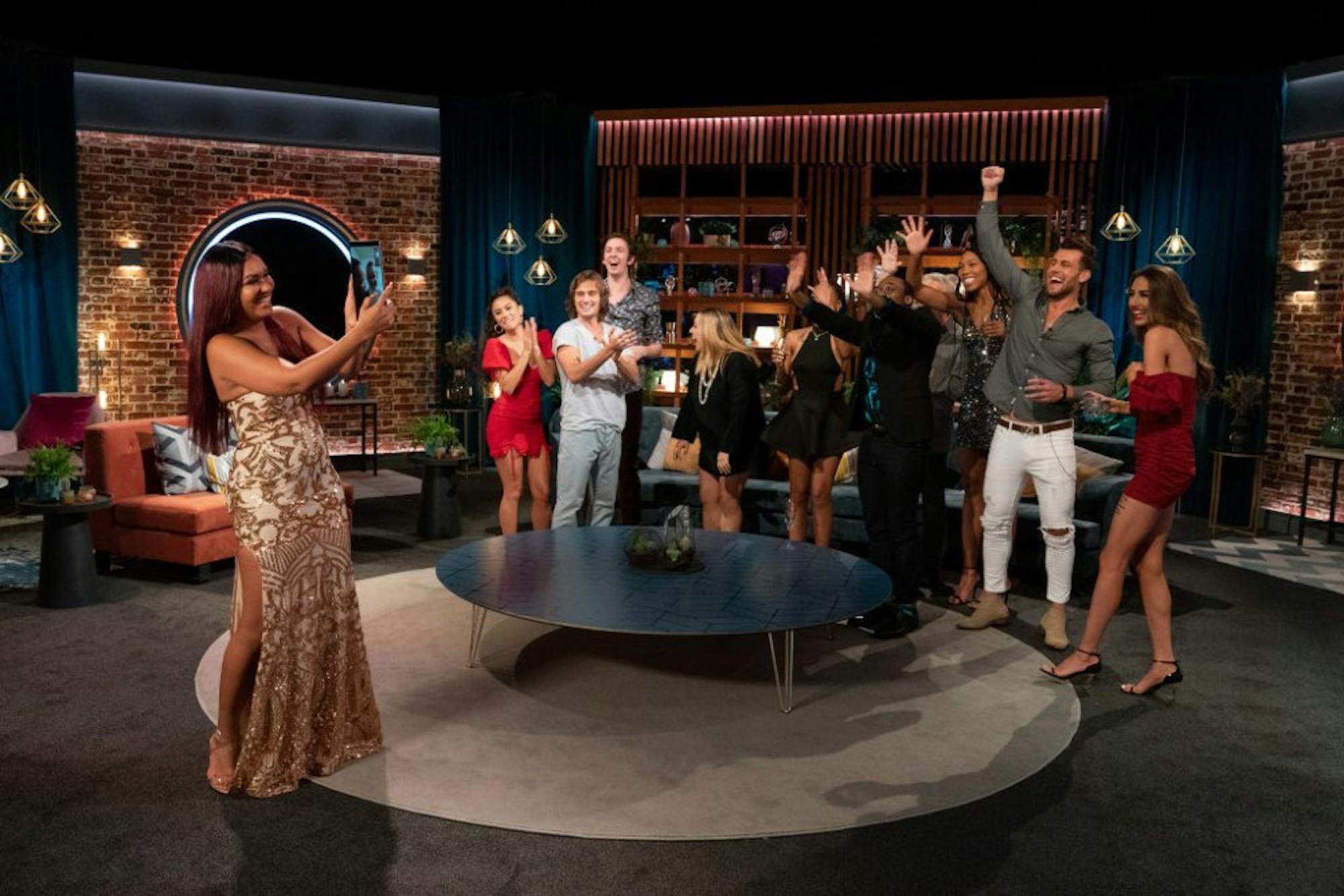After an intense second season, Netflix’s hit-reality competition series “The Circle” finally declared its winner on May 5. When the show first aired in 2020, many brushed it aside since a show where random people competed through a voice-controlled app called “The Circle” seemed like a corny attempt to bring an episode of “Black Mirror” to life. However, the show proved to have its own charm and became surprisingly popular due to the way it replicates social media.
The show’s premise entertains the idea that social media is, in many ways, a popularity contest by having contestants compete for the spot as the most well-liked player to win $100,000. Similar to the first season, a group of strangers live in the same building, are strictly confined to their rooms and are only permitted to communicate through a social media app called “The Circle.” So what’s the catch? Well, anyone can be anyone online. Therefore, some of the contestants can play as “catfishes.” Participants can pretend to be completely different people by using photos of anyone they want to create their profiles.
Interestingly enough, just like in the real world, you have to be extremely careful about what type of persona you create. To build alliances and seem trustworthy, you have to prove you aren’t a catfish. Periodically, the participants get to vote for their favorite contestants. The top two most popular players get to snag the highly-coveted “super-influencer” role, which basically means you get to decide who to “block” or kick out of the game. Although these elements are all part of the contest, “The Circle” is still able to comment on aspects of our current social climate.
Essentially, no matter what your favorite social media site is, it’s obvious these platforms have become very influencer-dominated. Apps like Instagram have shifted from users posting casual photos to high-quality images in hopes of gaining more followers or likes. It’s easy to adopt a personality online in hopes that you can become a successful influencer. Many of us also tend to filter our thoughts and feelings by simultaneously using phrases that we would never use in real life to seem more likable.

While it’s easy to be judgmental about this topic, the show points out whether you’re playing as an “authentic” version of yourself, everyone carefully crafts their media presence to a certain degree to make themselves seem more likable. Each participant understands this to some extent, which makes the interactions so fascinating. As viewers, we’re also able to see how despite all of the scheming, gossiping and strategic flirting, some people are actually able to start friendships.
Later on, after a contestant gets sent home, they have the opportunity to visit another player and confirm whether or not they’re a catfish. They also have to record a video message that gets displayed to the other players the next day. Ironically, most catfishes get told things like “why didn’t you just play as yourself” or “I would’ve liked you regardless,” which does come off as a bit preachy sometimes. Most of the time, these individuals have valid reasons for taking on a different identity, such as Karyn, who pointed out that people might not have reached out to her if she hadn’t played as a conventionally attractive woman in season 1. However, the fact that some of these friendships continue after the season has ended does show that people can make genuine connections on social media.
That being said, the show has its faults. For example, as the players converse through private messages, group chats and challenges, they use a ridiculous amount of outdated hashtags like “#ImAFunGuy” and “PeaPodSquad.” The hashtags can be very cringe-worthy or overused at times, and it feels like the producers added them in to relate to audiences. Instead, it makes the show feel somewhat outdated since no one really talks like that in 2021. Also, in this season, they decided to include celebrities as players such as Chloe from Netflix’s other reality TV show, “Too Hot To Handle.”
While this decision might have possibly attracted more viewers, it took away the appeal of seeing ordinary people navigate the show. In the beginning, people quickly warmed up to Chloe because they were aware she was on “Too Hot To Handle.” She formed alliances easily, and even though some players disliked her, no one truly questioned her character until later on. Chloe even managed to make it to the season finale. Her influencer status in the real world proved to be a bit advantageous on the show, which again unintentionally speaks on influencer culture. Regardless of these minor issues, the show has still managed to remain successful and has been renewed for a third season.




